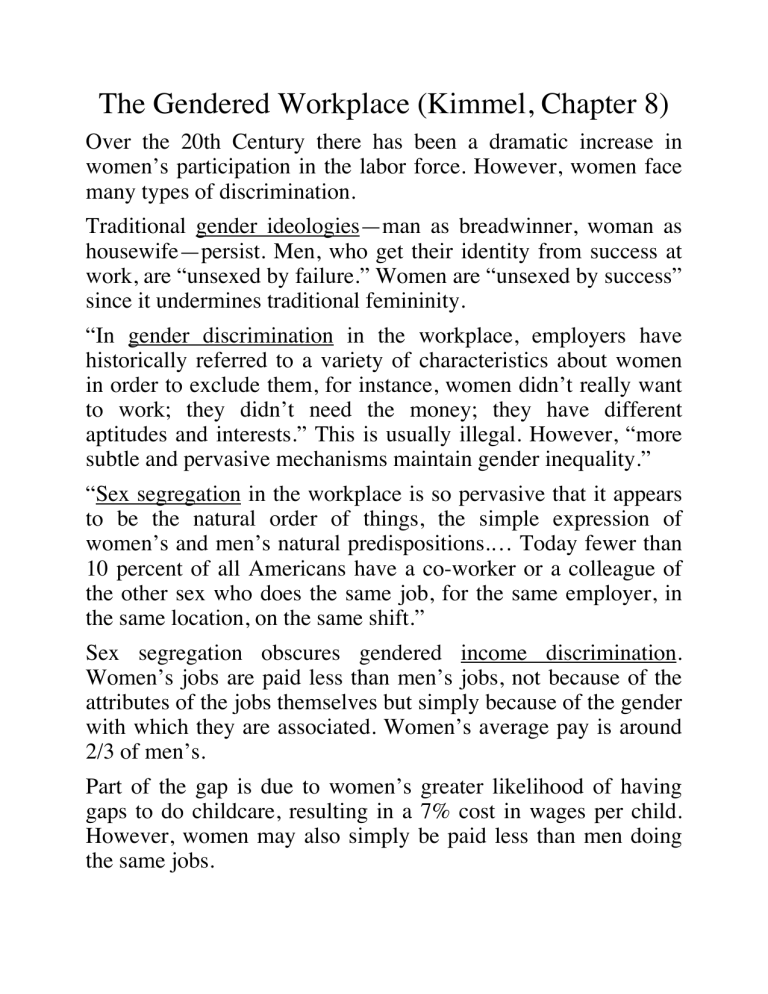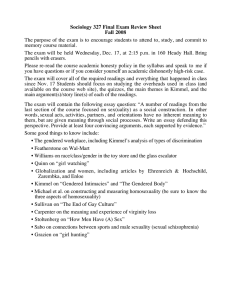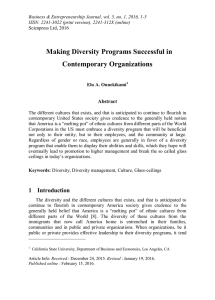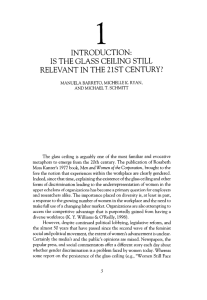The Gendered Workplace (Kimmel, Chapter 8)

The Gendered Workplace (Kimmel, Chapter 8)
Over the 20th Century there has been a dramatic increase in women’s participation in the labor force. However, women face many types of discrimination.
Traditional gender ideologies—man as breadwinner, woman as housewife—persist. Men, who get their identity from success at work, are “unsexed by failure.” Women are “unsexed by success” since it undermines traditional femininity.
“In gender discrimination in the workplace, employers have historically referred to a variety of characteristics about women in order to exclude them, for instance, women didn’t really want to work; they didn’t need the money; they have different aptitudes and interests.” This is usually illegal. However, “more subtle and pervasive mechanisms maintain gender inequality.”
“Sex segregation in the workplace is so pervasive that it appears to be the natural order of things, the simple expression of women’s and men’s natural predispositions.… Today fewer than
10 percent of all Americans have a co-worker or a colleague of the other sex who does the same job, for the same employer, in the same location, on the same shift.”
Sex segregation obscures gendered income discrimination.
Women’s jobs are paid less than men’s jobs, not because of the attributes of the jobs themselves but simply because of the gender with which they are associated. Women’s average pay is around
2/3 of men’s.
Part of the gap is due to women’s greater likelihood of having gaps to do childcare, resulting in a 7% cost in wages per child.
However, women may also simply be paid less than men doing the same jobs.
Women also may face a glass ceiling, which keeps them from being promoted into management positions. “Perhaps the most important element that reinforces the glass ceiling is the informal effort by men to restore or retain the all-male atmosphere of the corporate hierarchy.”
Women tokens in male professions are both hyper-visible as representatives of a category, but invisible as individuals.
However, men in female professions benefit from a glass escalator.
Sexual harassment, both quid pro quo and hostile environment, is not about sexual attraction but about making women feel unwelcome.
Remedies Kimmel advocates include enforcement of pay equity laws, comparable worth programs (equal pay for comparable jobs), interventionist strategies in hiring and promotion, elimination of the “mommy track” and institution of “family friendly workplace policies,” such as on-site day care, flexible working hours, and parental leave.









